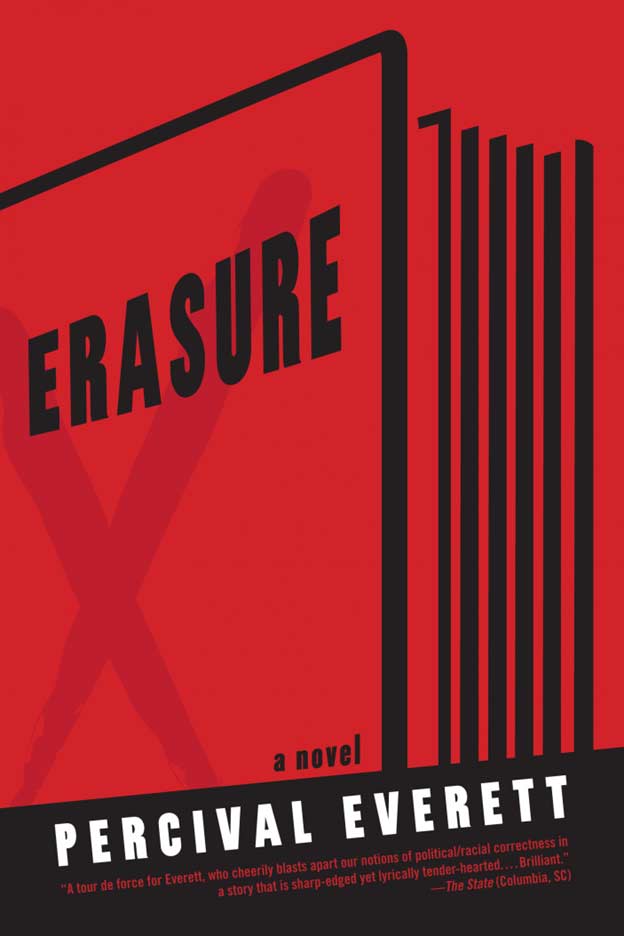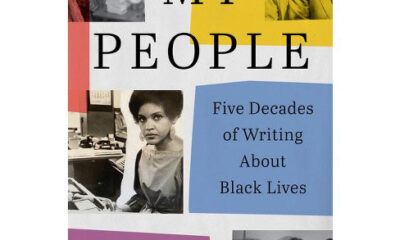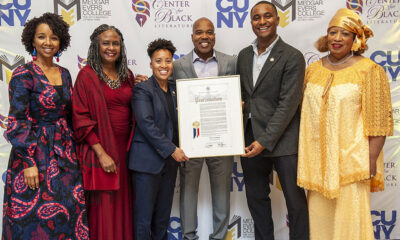Book Review
Erasure: A Novel

The Basis for the Film, American Fiction
Book Review by Dr. Brenda M. Greene
Erasure: A Novel by Percival Everett
Graywolf Press, 265 pp.
Erasure (Graywolf, 2001) by award-winning novelist Percival Everett is a satire and critique of the commercial and academic publishing industry, media talk shows, popular culture, and the reading and viewing habits of ethnically and racially diverse Americans. It forces America to look upon itself from the inside out and to examine its values of literature and the cultural arts. Everett critiques a market-driven and capitalist culture that, on the surface, undermines internal and external standards that drive what gets published. Framing the novel from the perspective of a Black fiction writer and public intellectual, Everett also explores the family dynamics of a middle-class Black family and identity politics.
Everett’s use of satire, a technique in literature that uses humor, irony, and parody to highlight, ridicule, and expose the flaws in a situation or organization, forms the basis of Erasure, a novel about a Black writer named Thelonius Ellison, who disillusioned by public response to his work, decides to write an urban ghetto novel that will play to the desires that the public apparently wants to see in the literature produced by Black writers. He is motivated to do this after witnessing the reception given to the fictional urban ghetto lit novel We’s Lives in Da Ghetto by Juanita Mae Jenkins. The Atlantic Monthly calls Jenkin’s novel “a masterpiece of African American literature.” Ellison’s response to this state of affairs in the publishing industry is to write his own urban ghetto-lit novel under a pseudonym, Stagg R. Leigh. Not surprisingly, Leigh’s novel, My Pathology, depicted as a novel within the novel Erasure, is widely acclaimed as an authentic representation of the Black experience in America.
Erasure raises critical questions that were relevant for American readers when the novel was published in 2001 and which exist today, 22 years later.
What do we value in literature?
What are the results of the commercialization of literature?
Why is the public drawn to literature that reinforces negative stereotypes of Black people?
How do we represent authenticity in literature?
How do books make the best-seller’s list? and what is the process for selecting books for an award?
Readers will also observe that the novelist Everett has characteristics that are similar to Ellison, the narrator of the novel. The selection of the name Thelonius Ellison (a blending of the names of the jazz musician Thelonius Monk and the writer Ralph Ellison) is an example. Ellison refers to himself as Monk, and like Thelonius Monk, who was known for improvisational jazz, Monk, the narrator, experiments with genres. He is known for writing experimental fiction and academic essays that explore philosophical ideas and are generally difficult for mainstream readers to understand. Monk, like the protagonist in Ralph Ellison’s Invisible Man, feels alienated and invisible. He escapes the reality of his situation by spending much of his time reflecting on abstract ideas in the literature of philosophers and writers to whom he is drawn. In short, Monk is an outsider in his family, his workplace, and his community.
Although there is a dramatic rise in the number of published Black writers, due in part to the rise in book clubs, self-publishing, and the increasing number of contemporary writers and scholars who are writing more nonfiction grounded in issues such as social justice, the policing and criminalization of Black and Brown men, women, and youth, racism, voter suppression, white supremacy, inequity in public housing, the health care system, and public education, we still face a publishing industry whose power limits the number of books that represent the multifaceted experiences of Blacks throughout the Americas and the English speaking countries representing the African diaspora. The character Monk illustrates this as he attempts to find his books in a chain bookstore. He cannot find them in the American literature section; instead they are located in African American Studies when the only evidence of his work in African American Studies is that his photo is on the jacket cover of the book. Monk also laments on the number of bookstores that have been driven to become part of the “Walmart” chain of books.
Readers may initially find Erasure challenging to read because of its structure, language, and parody of the publishing industry. I recommend that you persist and reflect on Everett’s timely message in 2023.
Percival Everett is the author of more than thirty novels and short story collections and is Distinguished Professor of English at the University of Southern California. He is the recipient of many awards including the Hurston/Wright Legacy Award and the PEN Center USA Award for Fiction. The film American Fiction, based on Everett’s novel Erasure, will be released in December and stars Jeffrey Wright, Tracee Ellis Ross, Issa Rae, and Sterling K. Brown.
Dr. Brenda M. Greene is Professor of English and Founder and Executive Director of the Center for Black Literature at Medgar Evers College, CUNY.





